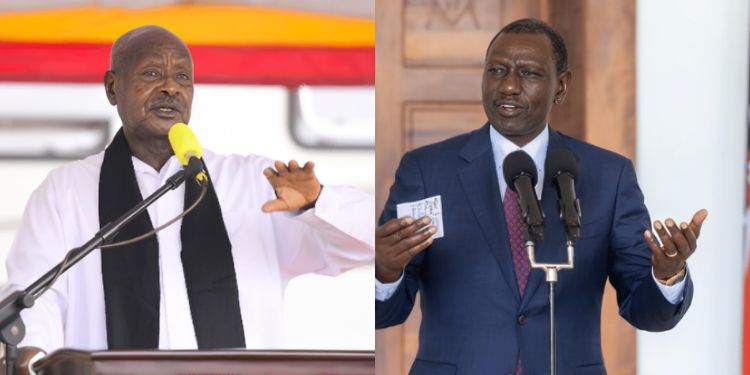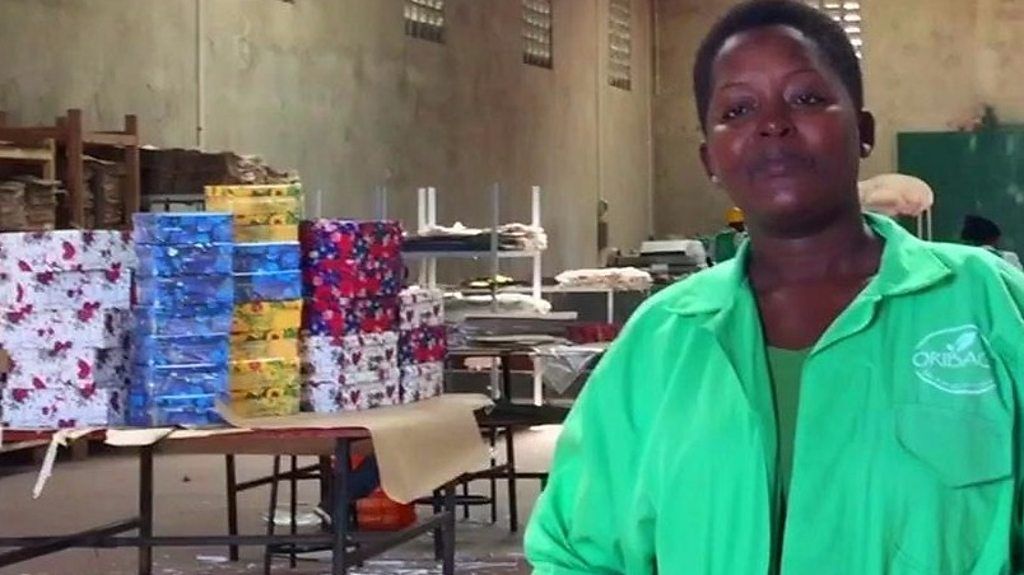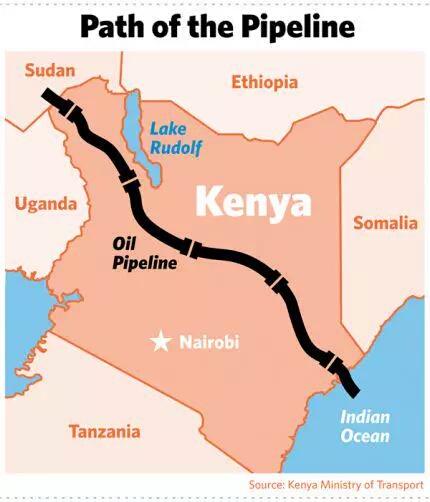Kenya Ordered to Pay 16 Ugandan Firms Ksh 6 Billion

The Court of Appeal has upheld a ruling requiring the Kenyan government to compensate 16 Ugandan transport and logistics firms Ksh 6.3 billion for trucks and goods destroyed during the 2007/08 post-election violence.
In its ruling delivered on Friday, October 24, the Court of Appeal reduced the payout period from 6 years to 3 years.
“The appellants’ appeal succeeds only in part, to the extent that the order assigning 15% loss of business per truck per annum for a period of six years be and is hereby set aside,” read the ruling in part.
“We substitute therefor, an order assigning 15% loss of business per truck per annum for a period of three years,” it added.
The appeal arose after the High Court, under Mbogholi J., in 2018 ruled in favor of the respondents, who were involved in cross-border transport operations between Kenya, Uganda, Rwanda, and the DRC.
Court of Appeal Upholds Order for Kenya to Pay Ugandan Firms Ksh 6 Billion Over 2007 Chaos
Kampala City Traders Association (KATRACO Uganda), Intraspeed Logistics, and Mugenga Holdings claimed that 22 trucks were destroyed during the chaos in Nairobi.
Other companies that laid claim to the destroyed trucks include Dooba Enterprises, Willex Uganda, SEBCO Uganda, KPI Limited, Bunyonyi Safaris, Seven Hills Impex, Uganda Agricultural Tools, Board City, Bidco Uganda, and businessman Tom Mugenga, owner of Mugenga Holdings.
During the post-election violence that followed Kenya’s 2007 general elections, the firms suffered losses from arson and theft, claiming the government failed to provide adequate security for their trucks and goods.
John Bosco Rusagara (PW1), Chief Executive Officer of Intraspeed, gave evidence on behalf of his company, Dooba Enterprises, and Mugenga Holdings.
He presented police abstracts, logbooks, valuation reports, and financial statements to support their claim, which totaled $47,577,081 for damaged goods and vehicles.
Bosco testified that before the incident, he had obtained loans, and that after the trucks were destroyed, he could no longer meet his financial obligations. His company was subsequently placed under receivership.
He also detailed losses of six trucks loaded with fuel and tires, two trucks loaded with tires only, and four trucks carrying tires and fuel type PM5.
It was his evidence that the moment they lost the cargo, they had to pay, as the cargo was not insured. He had valued his six lorries on 1st August 2011.
Faustin Mbundu (PW2), Managing Director of KATRACO Uganda, adopted PW1’s evidence, adding that their loss included three trucks, their trailers, assets, and business operations.
He prayed for compensation, noting that the trucks were loaded with “FMS” from Nakuru belonging to Petro Uganda.
Tom Mugenga (PW3), Managing Director of Mugenga, testified that his company lost eight trucks. He had valued the trucks prior to the incident for loan purposes, borrowing from NIC, DTB, and Bank of Africa, all Kenyan banks.
He said he had been ferrying goods for multiple clients and had continued paying for them since the incident, producing documents to prove it.
He further stated that he defaulted on the loan, leading the Bank of Africa to sell his lorries and to seek to sell his matrimonial home in Kampala.
Abubakar Katende (PW4), a valuer practicing in Kampala under Zolm International Limited, testified that he valued trucks for Intraspeed, KATRACO, and Mugenga based on type, model, year of manufacture, relevant taxes, maintenance records, and, where available, physical condition.
He admitted he did not sign the report and that his instructions were limited to truck valuations. His company was not involved in calculating the total losses.
Kenyan Govt Appeals 2018 High Court Ruling
The government, represented by the Attorney General and the Commissioner of Police, challenged the ruling.
They argued that the state owes a duty of security to the public generally, not to specific individuals, that the post-election violence was spontaneous, and that some claimed losses were exaggerated. They also questioned the admissibility of expert evidence and the calculation of business loss.
The appellants contended that the learned Judge erred in holding that the government of Kenya failed in its obligation to provide security to the respondents.
“The duty of the State to maintain law and order is owed to the public generally and not to specific individuals,” they said.
They contended that the respondents did not show any special duty owed to them. They further stated that the violence during the post-election period was spontaneous and the police should not be blamed for the outcome.
The appellants also argued that respondents reported the burning of the trucks to the police after the fact and that the police had no prior knowledge of the trucks’ locations or that they were at risk.
They claimed they were not served with notice of the judgment, which would have given them an opportunity to appeal. They further argued that some respondents exaggerated the values of their motor vehicles in the plaint compared with the valuation reports.
According to them, all vehicles belonging to Intraspeed Logistics Ltd were listed at higher values than those assigned in the valuation report by Zolm International Limited.
“The appellants filed their statement of defense dated 29th September 2009, opposing the original plaint. They denied liability and averred that they reasonably discharged their statutory duty of care in providing security,” the court ruled.
“They also denied the particulars of special damages in the plaint. However, they did not file any other documents in support of their case.”
Respondents countered that, under Article 89(f) of the Treaty for the Establishment of the East African Community, the Government of Kenya has a mandatory duty to provide security and protection for transport systems to ensure the smooth movement of goods and persons.
They argued that the appellants failed to do so, indicating a breach of this specific duty of care, and that the government did not provide evidence demonstrating that it had employed all its resources and efforts to perform its duties, leaving the respondents’ evidence unchallenged.





